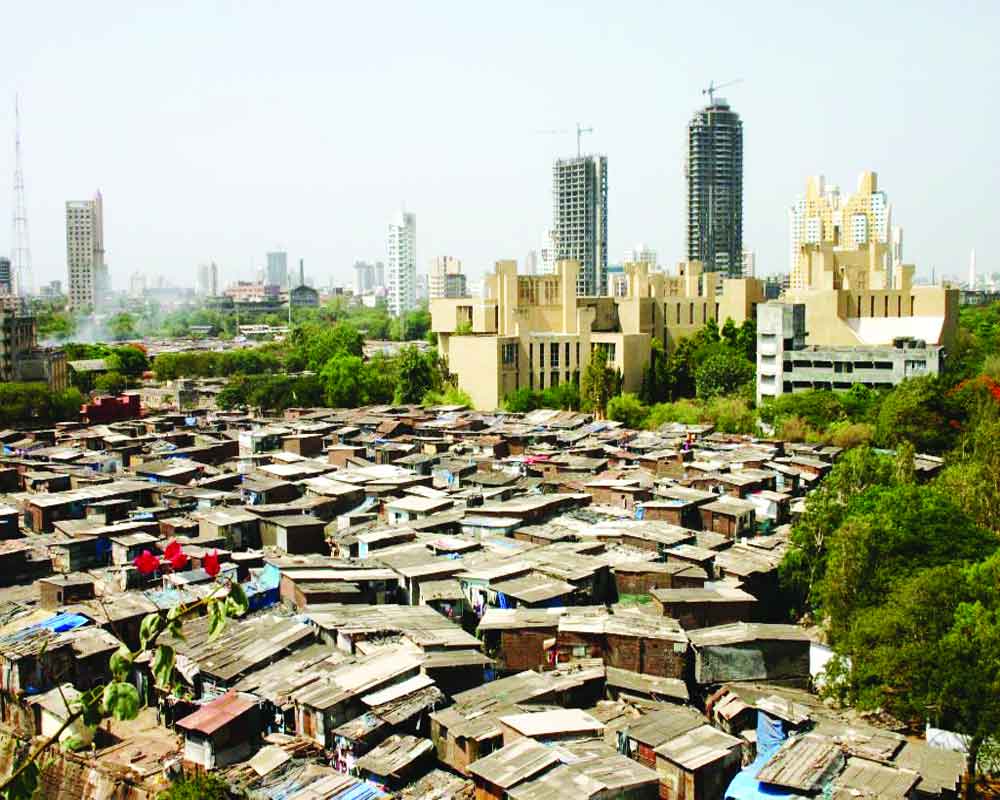The World Inequality Lab report says India’s top one per cent of the population holds a staggering 40.1 per cent of the nation’s wealth
In a diverse and democratic India, every citizen has an equal opportunity. A major global economic policy debate revolves around the pressing concern of wealth inequality in India. According to a recent research paper titled “Income and Wealth Inequality in India, 1922-2023: The Rise of the Billionaire Raj,” released by The World Inequality Lab (WIL) at the Paris School of Economics, the top one percent of India’s population held 40.1 percent of the country’s wealth in 2022-23, marking one of the highest levels globally.
At the 2023 annual meeting of the World Economic Forum (WEF) in Davos, Switzerland, Oxfam International unequivocally released a report titled ‘Survival of the Richest’, revealing that the wealthiest one percent of individuals in India possess over 40 percent of the nation’s total wealth. These findings have sparked significant concerns about the precision and influence of foreign research agencies’ assessments of India’s wealth inequality. The specific nature of these findings has had a profound global impact, singling out India’s rapidly expanding economy. Clearly, the issue of wealth inequality demands a comprehensive examination and a far-reaching discourse.
The issue of wealth inequality is often discussed at the WEF summit in Davos, where influential individuals from various fields come together to address global challenges. While there may be doubts about the methodology and biases of these reports, they still provide insights for consideration and reflection.
An individual’s wealth is distinct from the wealth of the corporation they own. Corporate entities have various stakeholders, such as banks, shareholders, and financial agencies, and they also have liabilities. The wealth of a corporation belongs to these stakeholders in proportion to their stakes.
There is a debate about why corporations’ competitive returns on their large investments are being targeted for wealth inequality, and why there is advocacy for wealth and inheritance taxes. Corporations argue that they already pay their fair share of taxes, including Corporate Tax, Goods and Services Tax (GST), Import-Export Duties, and Income Tax. Furthermore, they claim to contribute to the economy by generating employment and fulfilling their corporate social responsibility (CSR).
Some people suggest restructuring the tax system to account for both income and wealth and imposing an additional 2 per cent super tax on the wealthiest individuals to address inequality and promote economic growth and job creation. However, proponents of this idea believe that corporate competitive growth is a natural phenomenon and contributes to the country’s GDP growth. The export of goods and services as a percentage of GDP has increased from 6.3 per cent in 1984 to 22.79 per cent in 2022-23. This high growth has led to significant changes in the socio-economic fabric of civil society.
Since liberalisation in the 1990s, the economy has become increasingly globalised. Before 1990, wealth creation in India was minimal, billionaires were rare, and extreme poverty was prevalent. However, today, billionaires are common, and extreme poverty is history. According to Forbes, the number of Indians with a net wealth exceeding $1 billion increased from just one in 1991 to 162 in 2022.
Why Corporates Are Being Targeted: It is a common but politically deliberated interpretation that corporations have exacerbated wealth inequality. There is a concern about the irrational international agencies catalysing conflict against Indian corporations, which are major contributors to the country’s GDP and significant employers, especially when India ranks as the world’s fifth-strongest economy.
It’s important to note that existing inequalities based on gender, geography, ethnicity, race, caste, and religion already exist. Further disparities would not only harm our economy but also create a negative global public perception, hindering efforts to eradicate poverty. Extreme inequality is not inevitable and is often the result of political misgovernance, but it can be addressed through effective interventions.
When compared to many other countries, India is relatively better off in terms of income and wealth equality. Globally, the top one per cent of the richest individuals have accumulated 46 per cent of the world’s wealth over the past two years. According to Credit Suisse’s Global Wealth Report-2023, Russia has the highest wealth concentration, with the top one per cent holding 60 percent of national wealth. Brazil’s wealthiest one per cent holds 49.6 per cent, and in the USA, the top one percent of households own 33 per cent of the country’s wealth.
Way Forward: NITI Aayog claims that 25 crore citizens were lifted out of multidimensional poverty between 2013-14 and 2022-23, still around 23 crore below-poverty-line (BPL) families are there. The government’s key task is to uplift the poor, and the support of the corporate is crucial for this. Creating enough well-paying jobs is essential for reducing poverty and inequality. However, much more needs to be done to make India a less unequal country.
The Government must ensure that every individual has a constitutional right to access resources that can help reduce poverty and inequality. The definition and identification of BPL families in India need to be reconsidered. The government should focus more on pro-poor policies for domestic resource mobilisation.
The latest updates from the World Poverty Clock indicate that extreme poverty in India has dropped to less than 3 per cent. It is imperative to address the perception of wealth inequality in the country, as reported by foreign research agencies.This raises questions about the government’s commitment to poverty elimination, despite its much-touted slogan “Sabka Saath, Sabka Vikas.”
(The Author is Vice-Chairman of Sonalika ITL Group, Vice-Chairman(Cabinet Minister rank) of the Punjab Economic Policy and Planning Board, Chairman of ASSOCHAM Northern Region Development Council; views expressed are personal)


























